
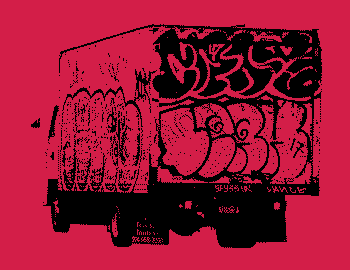
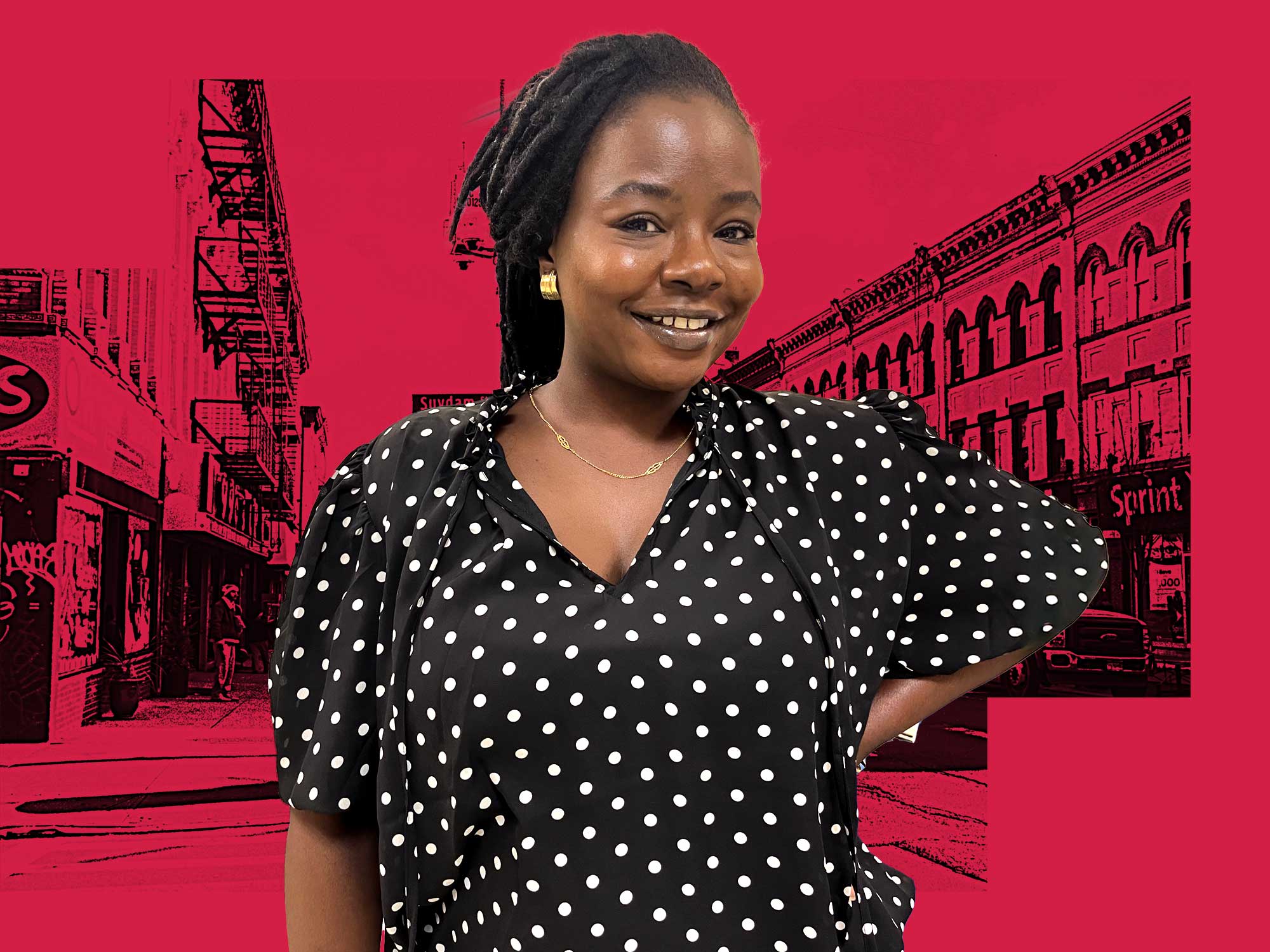
New York’s Community District 3, where Henry Street resides, ranks #1 in the city for the disparity between high- and low-earning households.
Data: NYU Furman Center; U.S. Census, American Community Survey.
CHILD POVERTY
42.6%
of Lower East Side children, and 28.9% of all residents, live below the federal poverty level*
*$30,000 for a family of 4—a measure that dramatically understates the cost of living in New York City
Extremely Low Household Income
$27,394
average median household income in the 7 Census tracts where Henry Street provides social services
Here are some of the dozens of ways that Henry Street is working to improve economic sustainability for our community (FY 2024 unless noted).
Provided
2,535
low-income households with stability through access to benefits and to legal and financial counseling
connected
453
people with jobs, including 71% of our building automation trainees, who are earning an average $25.07 wage
facilitated
367
professional certifications for 204 individuals, including OSHA 30, refrigerant handling, and fire safety
Enrolled
2,433
people in health insurance
Delivered
443K+
Meals on Wheels to isolated and homebound New Yorkers
SUPPLIED
4,689
bags of groceries at the CONNECT pantry in 2024
Provided
7,234
mental health visits to 218 youth through School-Based Mental Health Clinics
Served
2,656
children through free afterschool, weekend, and summer programs, including athletics and the NYCHA Arts Initiative
Mentored
100%
of Expanded Horizons high school seniors into a college of their choice
2024: We danced. We deepened connections. We opened doors.
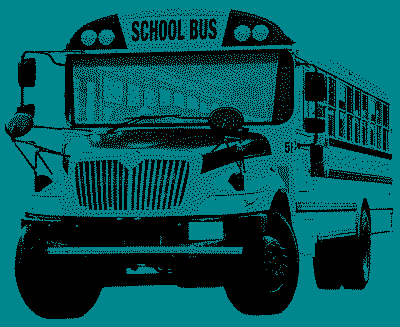
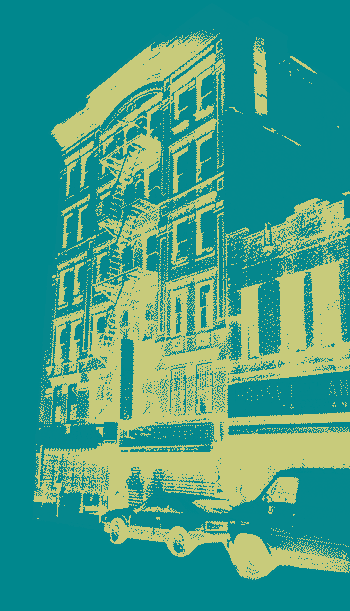
On the Lower East Side, the community Henry Street serves is navigating a new world—one where the labor market has changed, a mental health crisis is visible around us, and our unsteady political future is causing significant anxiety. Uncertainty in our world is particularly acute for many of our neighbors: immigrant participants face a precarious future; people who receive public benefits worry about their livelihoods; trans and all gender-nonconforming people fear for their safety.
In times of crisis, unpredictability, and anxiety, Henry Street’s role as a trusted resource is at its most important. Through successive crises, Henry Street has delivered dignity, guidance, and sustenance. But we couldn’t be there in the acute moments if we weren’t there for the in-between moments, when our team builds trust and opens doors, day in and day out. At the core of the stories in this report are the trusted relationships forged between our team and the community, as we help our neighbors find solutions to profound challenges.
Human services like the ones we provide play a crucial part in mitigating the worst effects of poverty and community instability—and create important opportunities to lift people out of financial struggle. We have been able to help address timeless human needs for 132 years by innovating to find the most effective ways to deliver services.
The work of the Settlement often feels like breathing in and breathing out. People flow into our spaces and programs, and our responses flow outward. Henry Street is a living, ever-changing entity that works hard to remain effective and responsive. Despite these uncertain times, the stories you’ll read here give us hope and faith in the power of neighbor helping neighbor, as Henry Street has done from the start. Thank you for your support that enables us to breathe life into our work and our community every day.
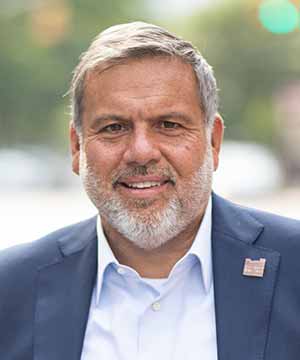
David Garza
President & CEO
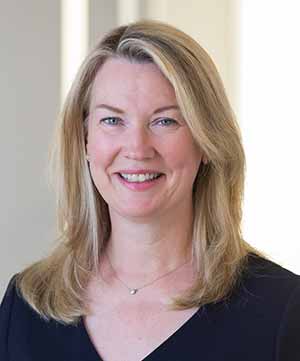
Catherine Curley Lee
Co-Chair
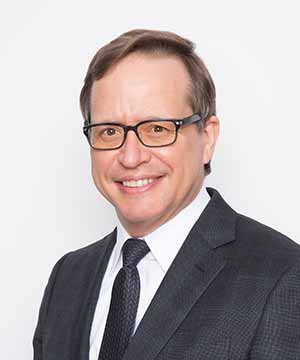
Ed Pallesen
Co-Chair
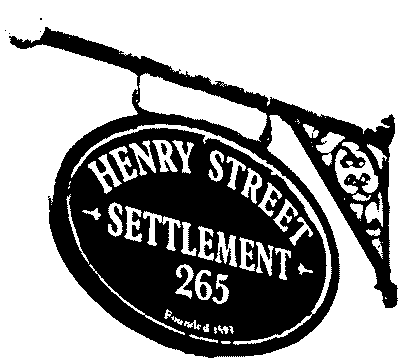
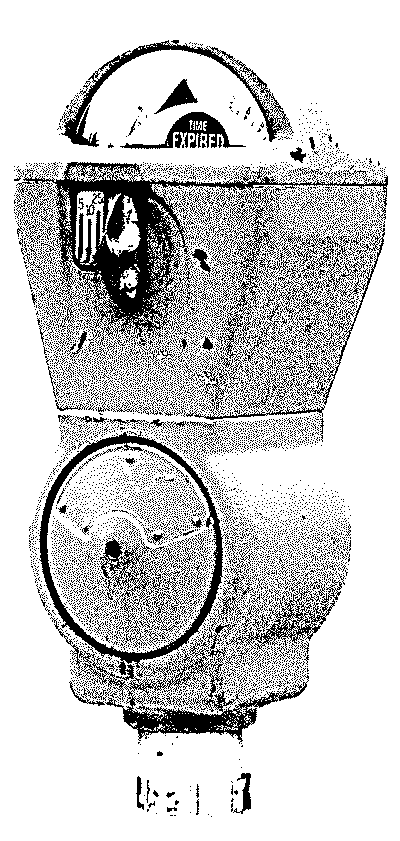
2024
At a complex organization like Henry Street—with more than 600 team members, 50 programs, and 18 locations, we often ask ourselves: How can we deepen our employees’ understanding and embrace of our mission and foster a sense of fulfillment? How can we embrace our history to shine a light on our future?
Henry Street took a step toward answering those questions when in 2023 our public historian, Katie Vogel, began developing a new professional-development program called the Lillian Wald Certification. The six-month training program immerses participating team members in the past as well as the present of Henry Street. Trainees meet with program leaders and board members; volunteer in an ESOL classroom and the Older Adult Center kitchen; participate in peer exchanges to learn about their colleagues’ roles; and tour Henry Street sites and the neighborhood to learn about resources that are available to the Settlement’s participants. Certification has been granted to three cohorts totaling 60 team members and the program has yielded numerous fruitful partnerships among team members across the agency.
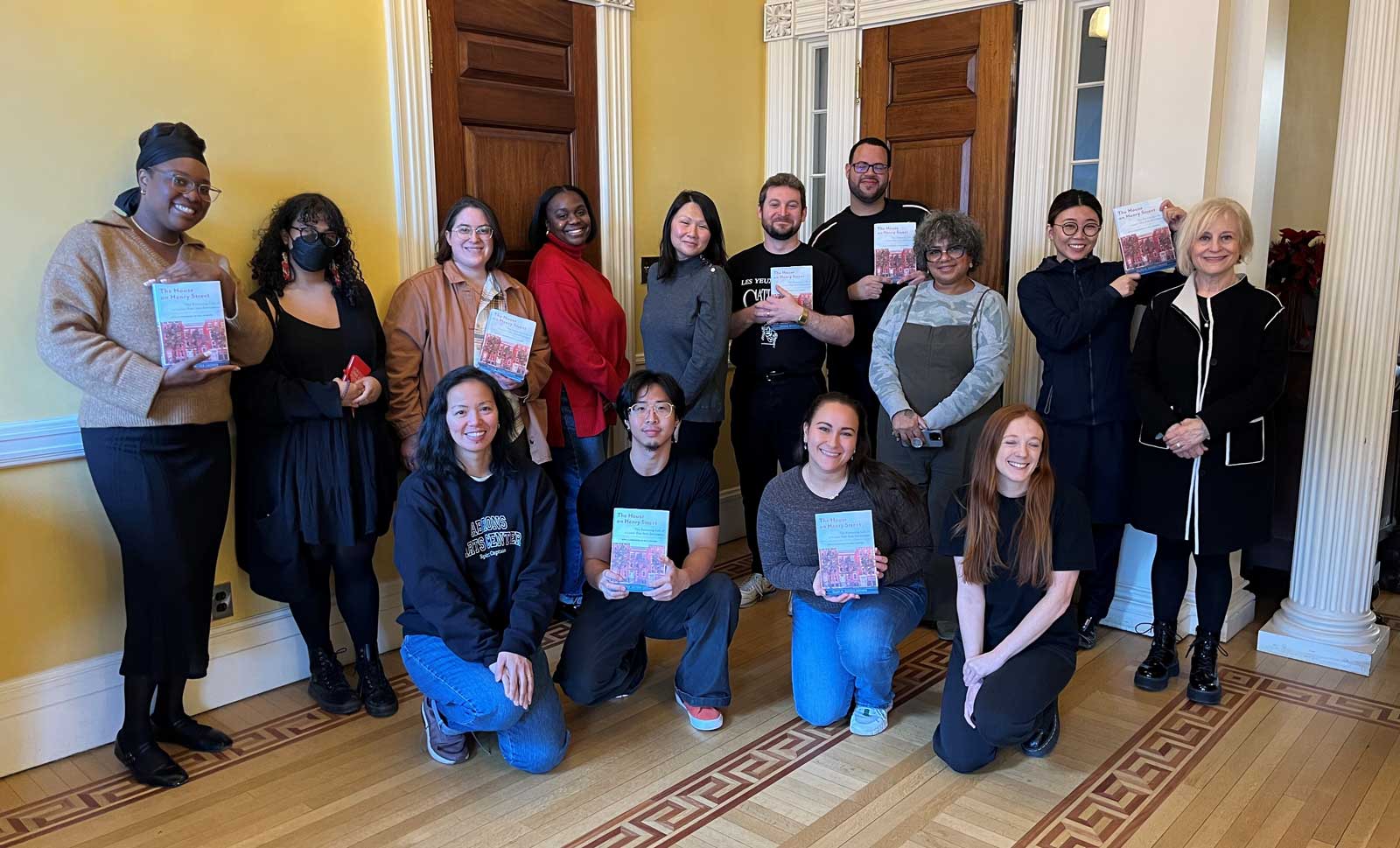
Lillian Wald Certification participants met with Ellen Snyder-Grenier (back row, right), author of The House on Henry Street.
In fiscal year 2024, Henry Street served 933 children and their families through our community-based afterschool and summer programming at Boys & Girls Republic and Jacob Riis Cornerstone. Last year, Henry Street moved toward unifying and revamping programming in both sites, which are located across East Sixth Street from each other, under the banner of The Learning Campus (TLC). Now, after having a snack in their “homerooms,” youth across both sites attend the activities they've selected, from sneaker design to science using household supplies, in 8- to 10-week cycles.
“The Learning Campus approach has allowed us to increase the number of activities and give kids more choice—and as a result, attendance has improved,” says Aaron Cummings, Jr., senior director of youth services. “Young people are enjoying afterschool more, and staff are thriving, learning from the various professionals and their teaching styles.”
The program has also enabled Henry Street to bolster its signature youth self-government program in which youth elect their own leaders.
Henry Street has also upgraded its Boys & Girls Republic game room, replacing old equipment with two new pool tables, one air hockey table, two ping pong tables, televisions, and gaming systems. Open weekday evenings, the game room has already helped retain younger participants and those who are not interested in traditional sports offerings, providing them with a safe place to socialize.
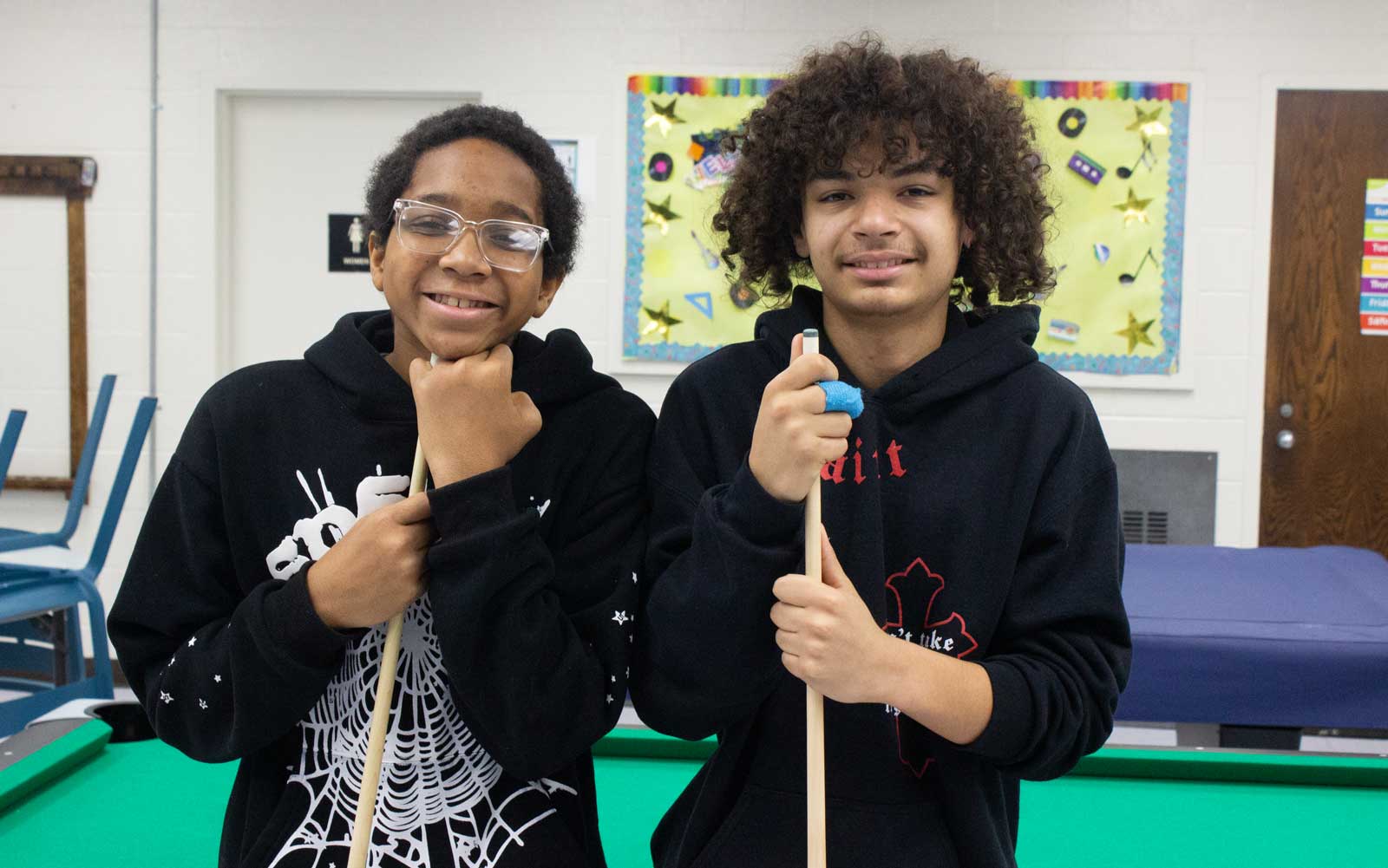
Henry Street updated its Boys & Girls Republic game room with new pool tables, air hockey, ping pong, and gaming systems.
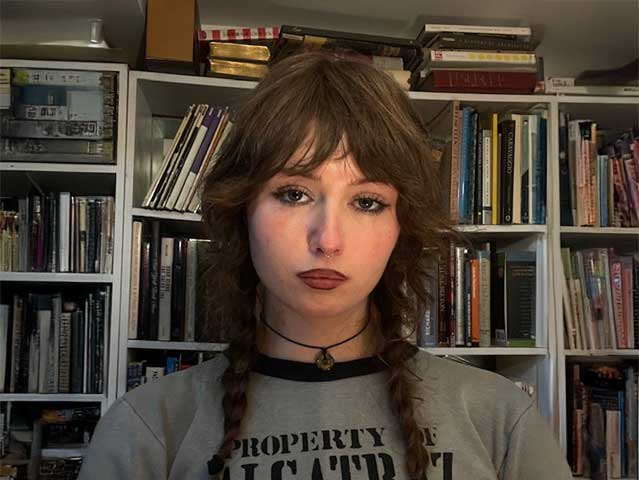
Marcella G., 20, who was aging out of foster care, used funds from Point Source Youth to purchase food and other necessary items during a period of housing limbo.
In 2023, Henry Street entered into a partnership with the Washington-based Point Source Youth, an organization that was piloting a program to prevent youth homelessness. Henry Street was selected as one of two New York City-based partners (and one of eight partners nationally) for this groundbreaking initiative focused on young people ages 16 to 24, with an emphasis on LGBTQ+ youth of color.
The program tests the hypothesis that a one-time cash grant can have an exponentially positive effect on young people at risk of homelessness, keeping them from being evicted from their homes or facing other catastrophic financial events.
During 2024, Henry Street provided direct cash transfers ranging from $3,000 to $7,500 to 46 eligible young people, as well as supportive services including employment help, referrals to legal assistance, and counseling.
At regular check-ins, all of the funding recipients reached were still housed, and many had joined the Henry Street network through Job Essentials Training or the Youth Opportunity Hub.
Throughout July and August, neighbors filled the Lower East Side’s Sol Lain and Dry Dock Parks for another summer of outdoor fun and community. Four outdoor events—two of them devoted to roller skating—featured art projects, line dancing, music performances, seed-planting, and free refreshments. These events were followed by an epic Community Day on September 7, 2024, honoring Lower East Side Double Dutch jump-rope legends the Fantastic Four, followed by an energy-filled performance by Ms. K's Dance & Double Dutch Academy.
These events brought together more than 2,000 people, with another 1,300 attending our Halloween celebration in Sol Lain Park. Summer events serve a dual purpose, providing families with an outlet for safe fun together while introducing community members to Henry Street services. Thank you to our sponsor, NewYork-Presbyterian, whose generosity powered all our summer 2024 events.
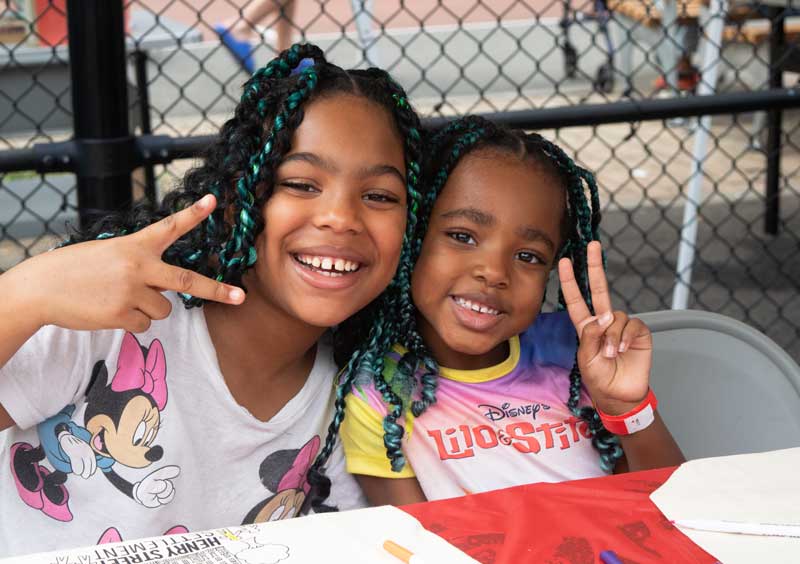
Community Day participants paint Henry Street tote bags.
The 9th annual Lillian Wald Symposium, Welcoming New Migrant Neighbors: Can NYC Live Our Ideals? was held April 17, 2024, at Abrons Arts Center. Panelists—both immigrants themselves and service providers—discussed the numerous challenges migrants have encountered, including inhumane detention centers, the limitations of New York’s shelters, fearmongering attitudes, and the complicated bureaucracy of the asylum application process. They also addressed the responsibility and capacity of the city to provide shelter and other services for new migrants. Speakers included Edafe Okporo, author and founder of Refuge America; Henry Love, vice president of public policy and strategy for Win, a shelter-providing organization; Jodi Ziesemer, co-director of the Immigrant Protection Unit at New York Legal Assistance Group; and a recent migrant member of Henry Street programs. Alyssa Katz, executive editor of THE CITY, moderated.
Americans want to profess to be welcoming, but in actuality when it requires us to welcome people, we tend to look at the things that make us different from them.
Edafe Okporo, author and founder of Refuge America
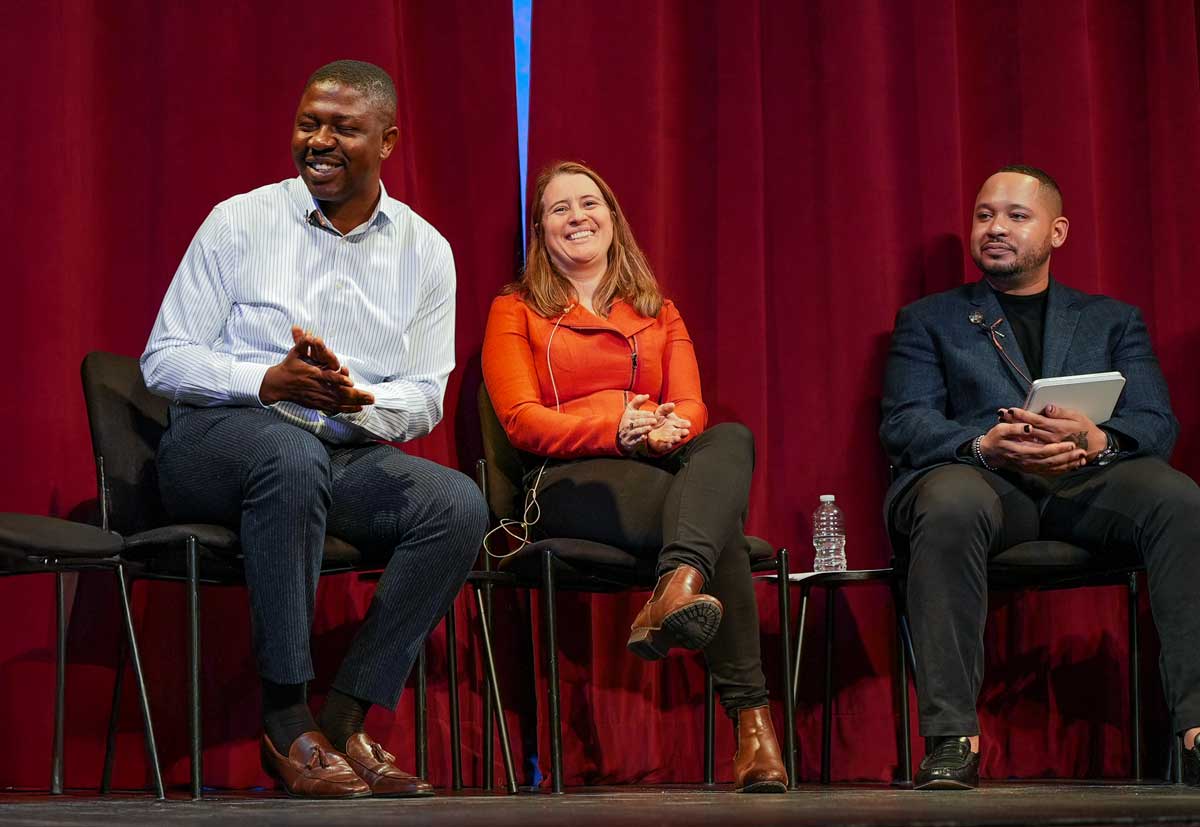
Edafe Okporo, Jodi Ziesemer, and Henry Love spoke at the Lillian Wald Symposium.
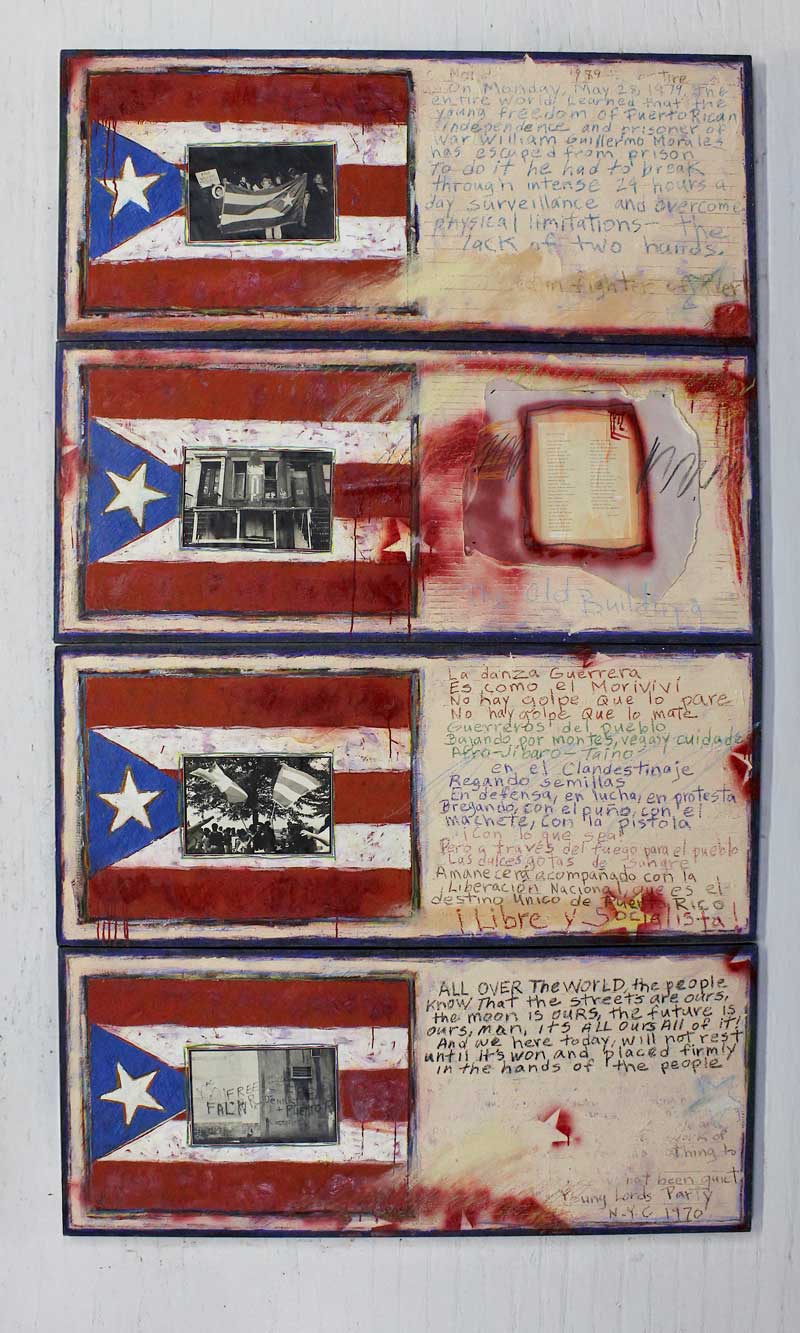
Juan Sánchez’s piece Banderas features diary-like entries of poetry and writing with images of his family’s home in Bushwick alongside pictures and texts about the Young Lords Party, a civil rights organization for Puerto Rican independence.
One of the most enduring traditions of Abrons Arts Center is the AIRspace visual artist residency program, begun in 1980. More than 200 artists have occupied Abrons studios over the years. In November 2024, the center opened the exhibition Long walk from the F train, a 40-plus-year retrospective of works by former participants. The exhibition featured 14 residency alumni, ranging from the program’s first cohort to the present.
The assembled works echoed how artists and their practices have lived and grown at Abrons.
Joshua Lubin-Levy and Camila Palomino
On Tuesday, October 29, 2024, more than 2,300 artists, collectors, celebrities, philanthropists, and long-time Settlement supporters gathered at the stunning Park Avenue Armory for the 36th annual Art Show Benefit Preview, Henry Street's largest annual fundraiser. The event was organized by the Art Dealers Association of America with support from lead partner AXA XL, a division of AXA Group, and thousands of generous supporters, committee members, and partners.
Through ticket sales, sponsorships, and the auction of works donated by The Haas Brothers at the Christie's Design Sale, the event raised more than $1 million in unrestricted support for Henry Street’s programs.
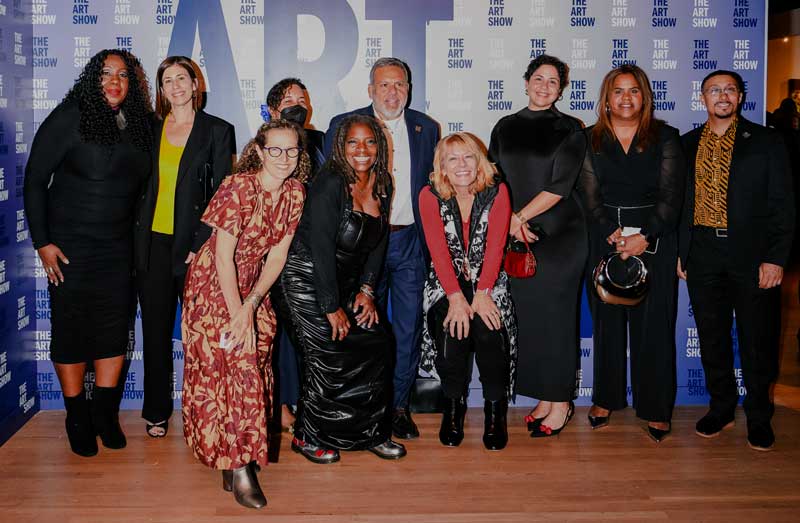

Henry Street Leadership Team members and guests at The Art Show enjoyed immersive exhibits as well as delicious appetizers.
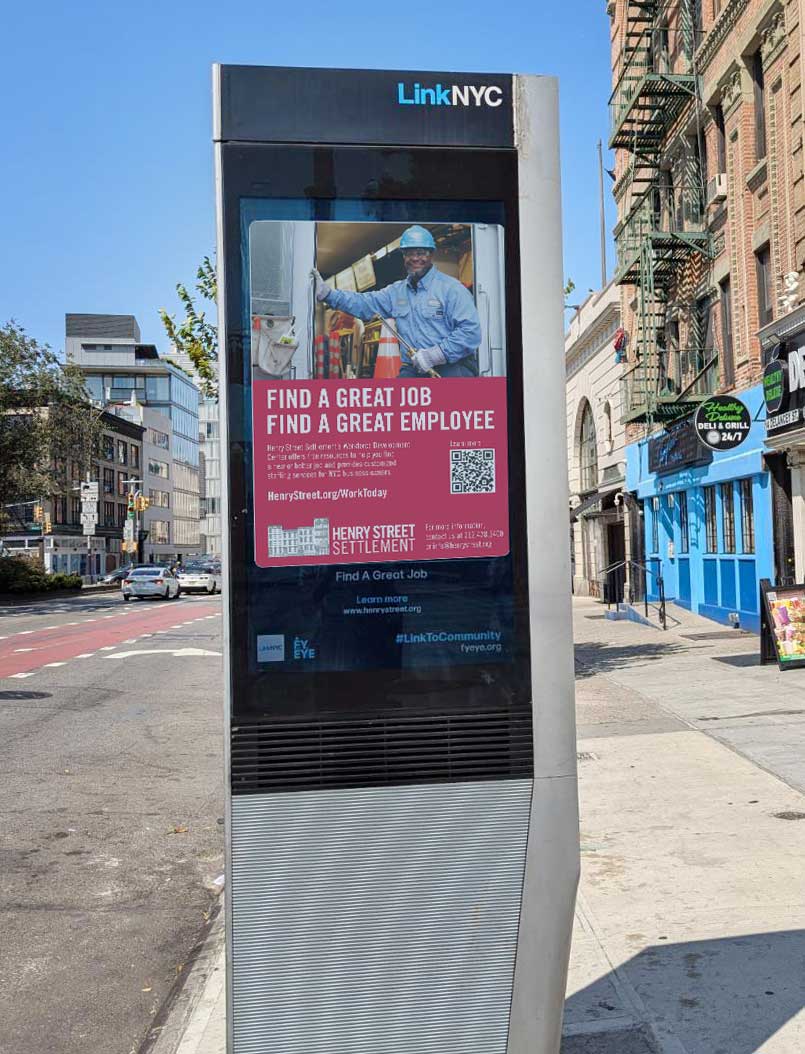
Henry Street’s employment programs were featured on LinkNYC kiosks throughout the city.
In September, Henry Street was selected by the nonprofit media agency F.Y. Eye to broadcast a public service announcement on thousands of digital screens at LinkNYC kiosks and community-partner sites across all five boroughs.
The Settlement chose to spotlight our Workforce Development Center, which offers resources for both jobseekers and employers. The PSA featured Munir Smith, a former Henry Street team member who is working in steam operations at Con Edison. Smith secured this job after graduating from Henry Street’s Building Automation Systems Training program, in partnership with Stacks+Joules.
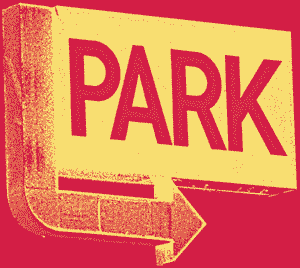
The Henry Street Effect
Six former Henry Street participants reflect on the impact these programs have had on their lives and careers. Click on each story to learn more.
READ TIANA's STORY
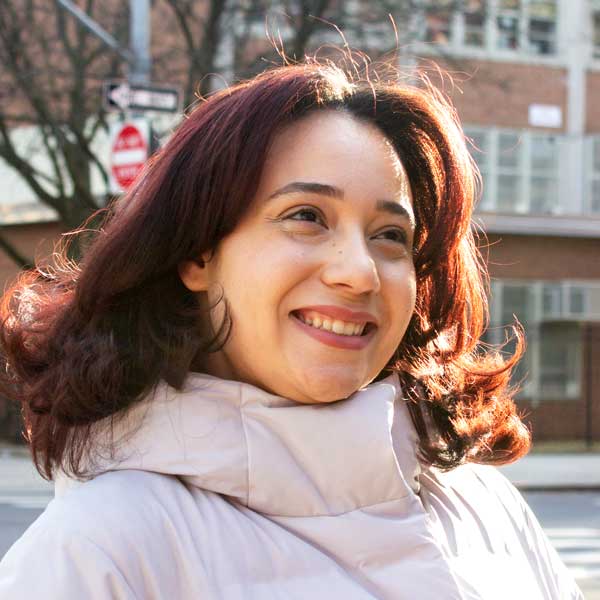
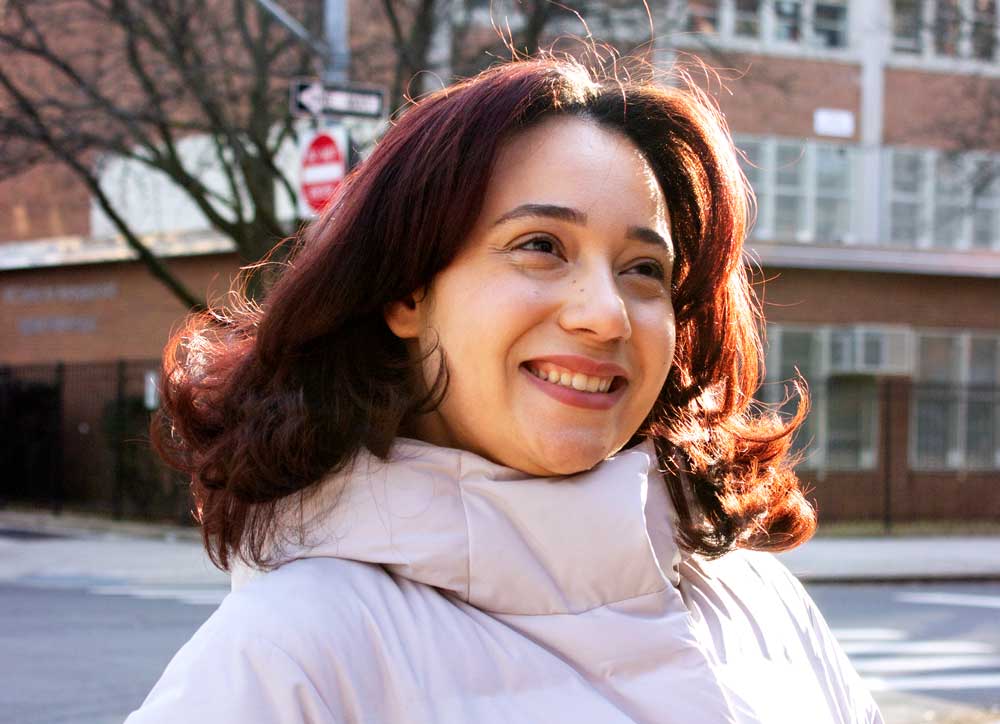
Four years ago, we featured Tiana Burgos, a young Lower East Sider, who at the time was intently focused on keeping her grandmother safe at the start of the pandemic. Laid off from her job, Tiana, who had long struggled with anxiety, was facing days spent in fear and isolation.
Tiana learned of Henry Street’s Youth Opportunity Hub from an Instagram post, and she is still reaping the rewards of the experience. The Hub is an education, employment, and social-support program for young people ages 10 to 24. Tiana signed up for online improv, art, and poetry classes and right away felt her stress lifting. Soon she proposed a screenwriting class, like the one she had taken in college, for middle and high school Hub participants—and she was hired to teach it.
This was Tiana’s first time creating lesson plans and speaking in front of a group—and it formed a crucial step toward her new, full-time job as a substitute teacher with the New York City Department of Education and acceptance into its Teaching Fellows program to become a special education teacher.
“The Youth Opportunity Hub was really what had the biggest impact on my decision to go back to college,” Tiana says. “Being at the Hub made me feel capable and smart.” In 2024 she earned a bachelor’s degree in journalism and creative writing and began working as a part-time substitute teacher at Lower Manhattan Arts Academy.
Tiana—who took music classes as a child at Abrons Arts Center—also sings, writes songs, and makes music videos, influenced by her Nuyorican upbringing and multiple dance forms, including salsa, dancehall, and hip-hop. “It’s all about my culture and identity,” she says. “Being Nuyorican,” she adds, “I’m about knowledge—bringing knowledge to the community. That’s one of the reasons I studied journalism and why I now want to be a teacher.”
READ ENID'S STORY
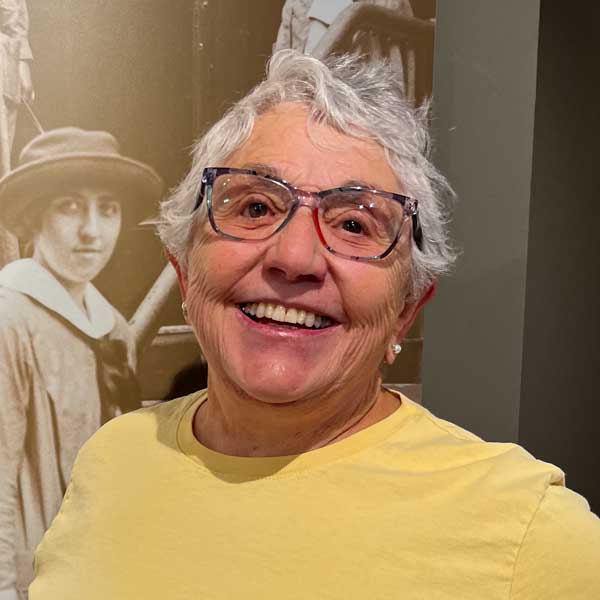
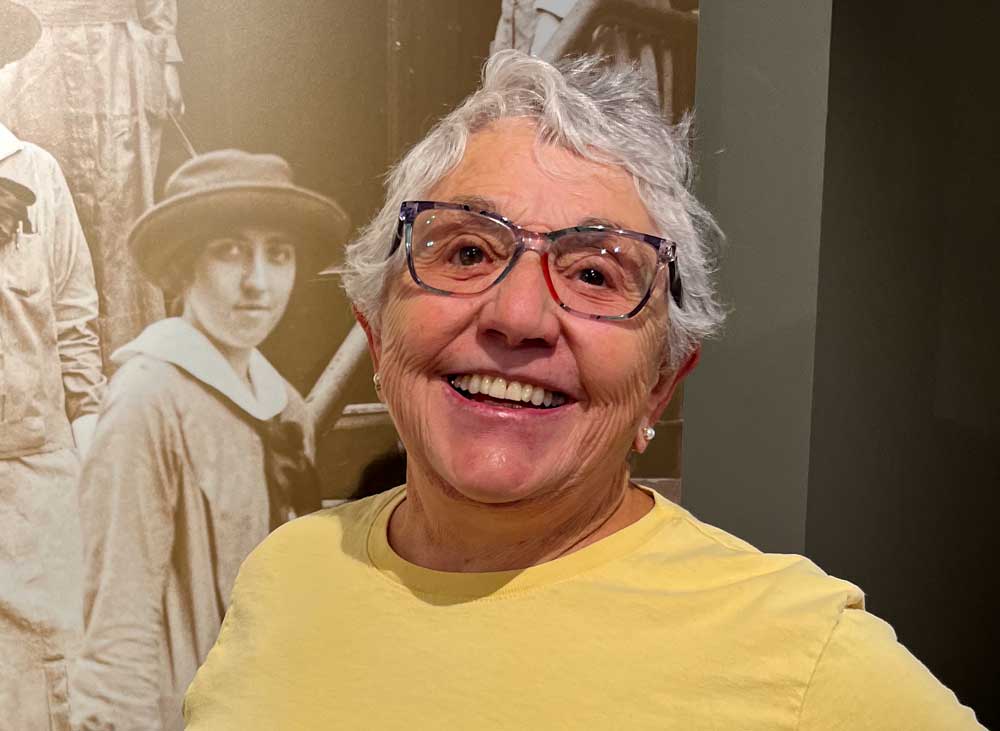
Enid Zwirn remembers watching workers pour concrete to make the sidewalks outside of the Lillian Wald Houses on Avenue D, where she and her family lived, in 1949. Enid attended P.S. 188 on Houston Street and then Seward Park High School. But from about the age of eight, she lived another life outside of school—one that took her past the pickle sellers on Pitt Street to Henry Street’s Neighborhood Playhouse. There, she took theater and dance lessons during the heyday of modern dance, with some of its pioneers, Murray Lewis and Phyllis Lamhut.
Back then, students in black leotards danced barefoot in mirrored studios, and afterward they washed their feet in wide porcelain sinks. In September 2024, Enid visited the arts center for the first time in decades and found it mostly unchanged, the corridors echoing with set designers preparing for a show.
Though Enid never lost her love of theater and dance, when it came time to choose a career, she chose nursing, one of the few paths available to her. She was accepted to the Beth Israel Hospital School of Nursing and by age 17 was put in charge of a hospital floor. Enid went on to earn bachelor’s, master’s, and doctoral degrees—the latter at Indiana University, where she spent most of her career as a nursing faculty member.
Enid taught her students about Henry Street Settlement founder Lillian Wald, the legendary nurse after whom Enid’s childhood housing complex had been named.
“Lillian Wald made a huge contribution to what we now call the social determinants of health,” she says. “That food, housing, transportation—it all determines your health status.”
Enid is guided by Lillian Wald’s ethos, that when you see a patient, you also see the family and the community. With that perspective, born on the Lower East Side, she has infused Lillian Wald’s worldview into the practice of nursing carried out by the thousands of students she has influenced across her career.
READ HO's STORY
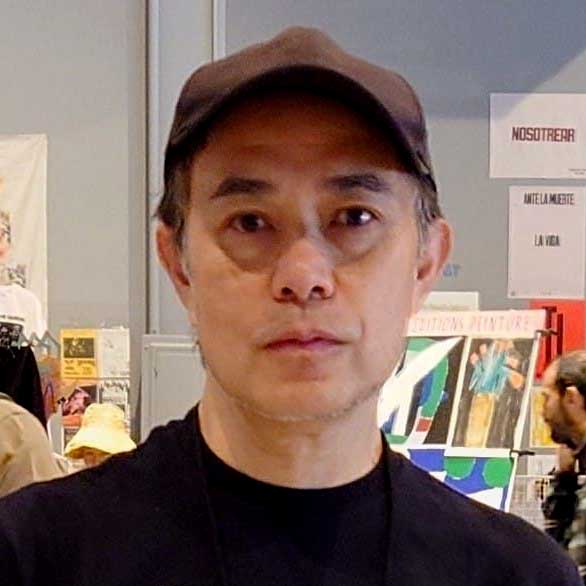
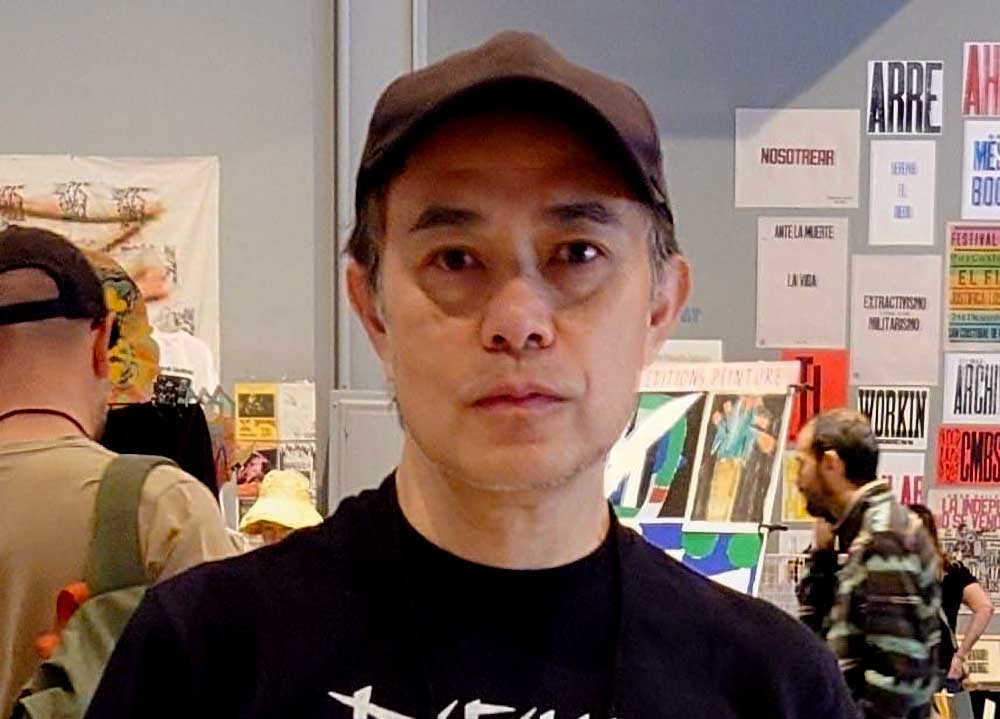
Artist Ho Tam, 62, came to New York City in 1996 to participate in the Whitney Independent Study program. When the program was over, he wanted to keep making art in the city but needed a studio space. The artist Victor Tang, who had been a member of the Abrons Arts Center AIRspace Residency, told him about the program, to which he eagerly applied.
In December 2024, Ho returned to Abrons as one of 14 artists selected to be part of a 40-plus-year AIRspace retrospective, Long walk from the F train.
At the time of his residency, Ho—born in Hong Kong and raised in Toronto—was living in Washington Heights. (“I had an hour-long trip on the subway to Abrons; it was much longer than the walk from the F train,” he laughs.)
The residency afforded a shared studio and an exhibition at the end of the year. But it also provided access to a new part of town. Hanging out with friends in Chinatown, Ho noticed the large number of barbershops there, and in 1998 he started making a video series about them.
“I had my camcorder out,” he says, “and started filming one street and then another.” Soon, he had documented more than 100 barber shops. A documentary that grew out of this series was accepted into a prestigious film festival in Japan.
“It was just amazing to see hair culture in Chinatown,” Ho says. “I dug deeper into it and I think it was kind of a comfort place that people go to; it’s someplace immigrants can go that is their own.”
Now living in Vancouver and teaching at the University of Victoria, in British Columbia, Canada, Ho has continued to make videos and experimental films, often focusing on the immigrant experience. He says the residency is something he still cherishes and misses.
“The lasting effect was less about the work in the studio and more about being immersed in the community,” he says, “I’m always working from a grassroots place, and I was very close to that when I was on the Lower East Side.”
READ ANTHONY's STORY
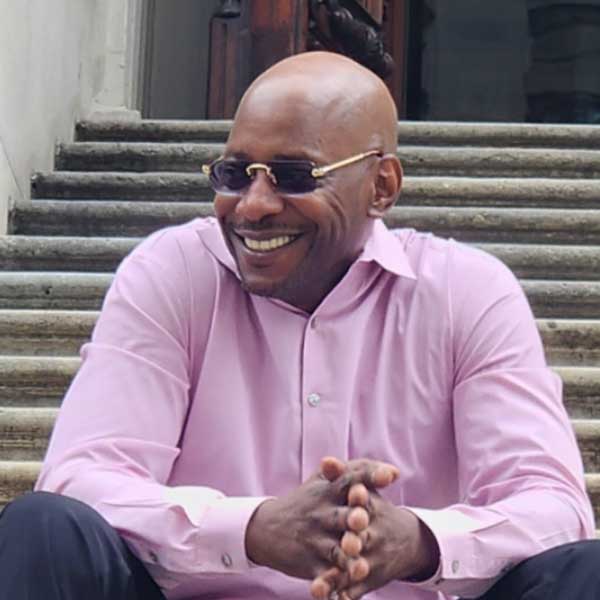
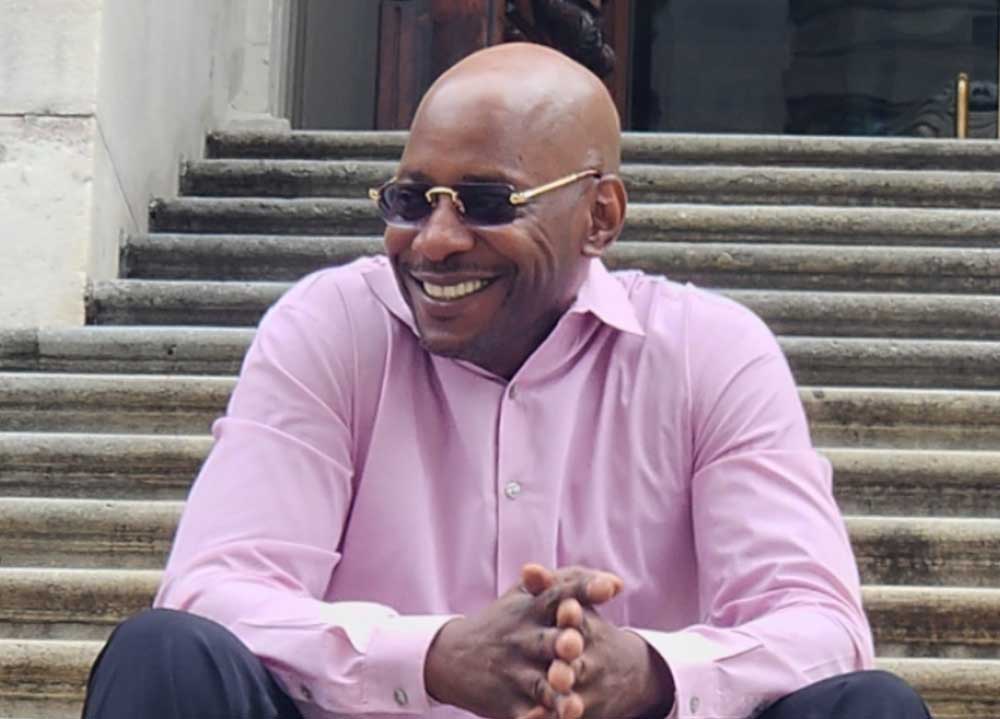
In our 2021 annual report, we introduced Anthony Small, a participant in the Settlement’s Job Essentials Training program who was working as a community coordinator for the New York City Department of Health and Mental Hygiene. As part of a mobile crisis unit, Anthony conducted street outreach, helping people who were experiencing homelessness, violence, addiction, or mental health crises.
Anthony had come to Henry Street’s Workforce Development Center soon after his 2017 release from prison. Having been incarcerated for 31 years, he was new to applying for jobs, but his employment coordinator, Jay Koo, helped him successfully translate his skills and experience onto his resume. He landed a position as a community navigator in Harlem, with CUNY’s Silberman School of Social Work, before moving to the health department.
Anthony had experienced profound trauma while passing through 12 New York State correctional facilities. Yet, in 1990 he earned his GED, followed by a bachelor’s degree through the celebrated Hudson Link-Mercy College program at Sing Sing Correctional Facility, and then a master’s degree in theology. “All we had on our hands was time to study,” Anthony says.
In 2024, when his street outreach program was discontinued, Anthony was promoted to an administrative position with the health department—a case monitor role in the city’s Assertive Outpatient Treatment (AOT) program, which delivers court-ordered treatment to those with serious psychiatric diagnoses, enabling them to remain safely in the community.
“There’s a learning curve because it’s not something I’ve done before,” says Anthony. While the city is in the midst of a serious mental health crisis, he says, he understands the troubles facing many of the patients who have been released from prison or are parolees. “I’m still caring for others and making sure everybody is safe, but now I’m learning how to make an impact from an office.”
READ JADAh's STORY
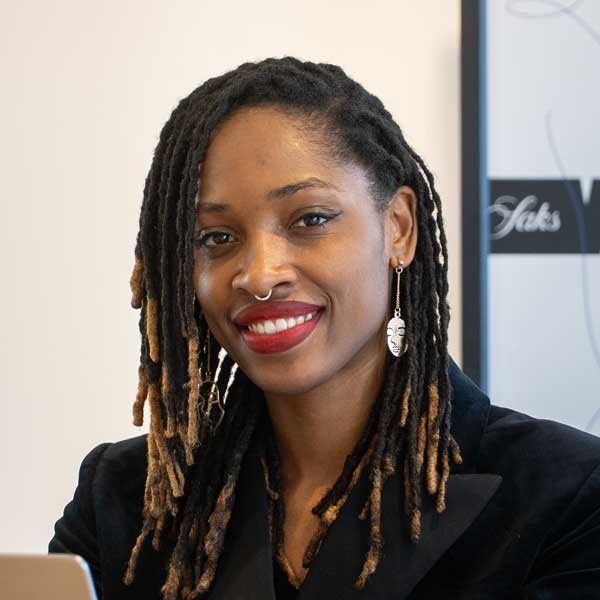
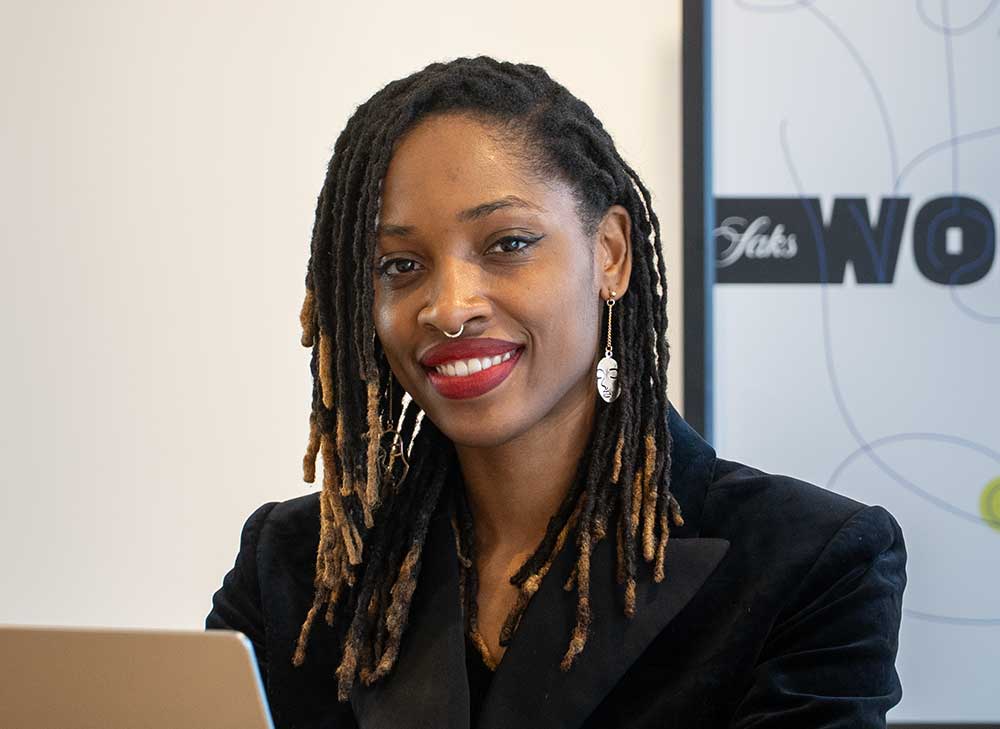
In June 2021, Henry Street published a story about Jadah Stone, a then-20-year-old from Brooklyn who had already built a strong foundation in IT and was ready to take the next step in her career. From an early age, Jadah was fascinated by technology, leading her to enroll after high school in Tech Bridge/Per Scholas—a program that brings underrepresented groups into the IT profession. Determined to carve out her own path, she pursued multiple industry-recognized certifications, internships, and entry-level roles.
When it came time to transition into a position with greater responsibility, Jadah recognized the need to refine her interview skills and navigate corporate environments more strategically.
“I was well-equipped technically but wanted to improve how I presented myself in professional settings,” Jadah says. “That’s where Henry Street played a pivotal role—helping me build confidence in my communication skills and approach.”
With the help of the coaching she received at the Settlement’s Job Essentials Training program, Jadah secured a position on the IT team at Casper, the mattress company, where she expanded her expertise across technical areas. Within a year, she leveraged that experience to land an IT support specialist role at Saks Fifth Avenue.
Saks soon promoted Jadah to a systems engineering position, where she plays a key role in maintaining, optimizing, and securing the company’s IT infrastructure. Jadah was on the frontlines during two major organizational transformations, helping integrate systems and standardize processes across newly merged teams.
“It’s a big promotion and a leap,” Jadah says, describing how she positioned herself for an opportunity that not only advanced her career but also enabled her to move into her first apartment.
The insights Jadah gained at Henry Street were invaluable, she says, but she’s also learned to trust her own abilities. “There are times when I have to work harder to ensure my contributions are recognized, but I’ve reached a point where my results speak for themselves. In this industry, success is built on collaboration and innovation, and I enjoy being a driving force in that process.”
Every dollar you give opens doors for the people Henry Street serves.



I’d been going counterclockwise, and Henry Street helped me pivot to a clockwise direction.
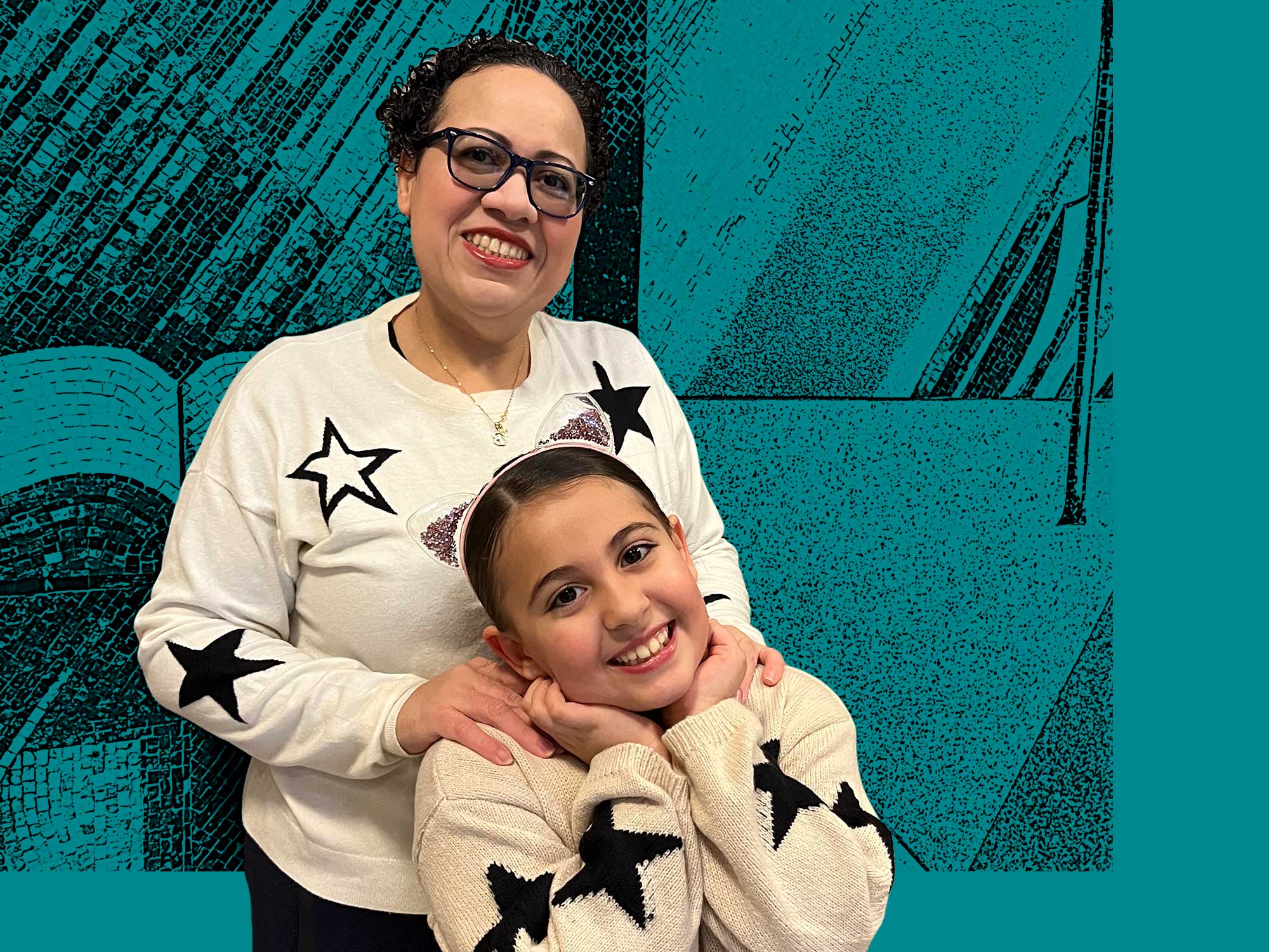
I can give my daughter an education and save for her college. The support I didn’t receive as a child I want to ensure she gets.
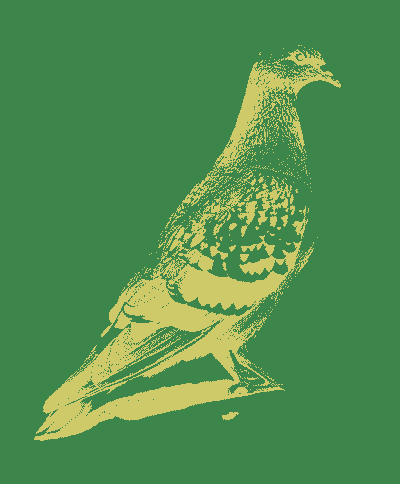
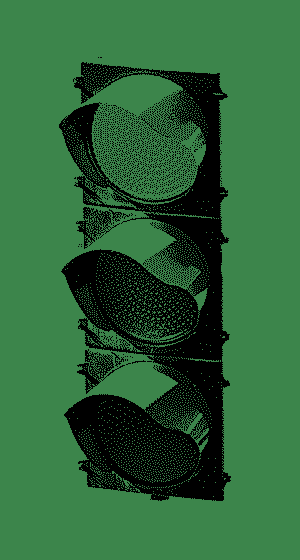
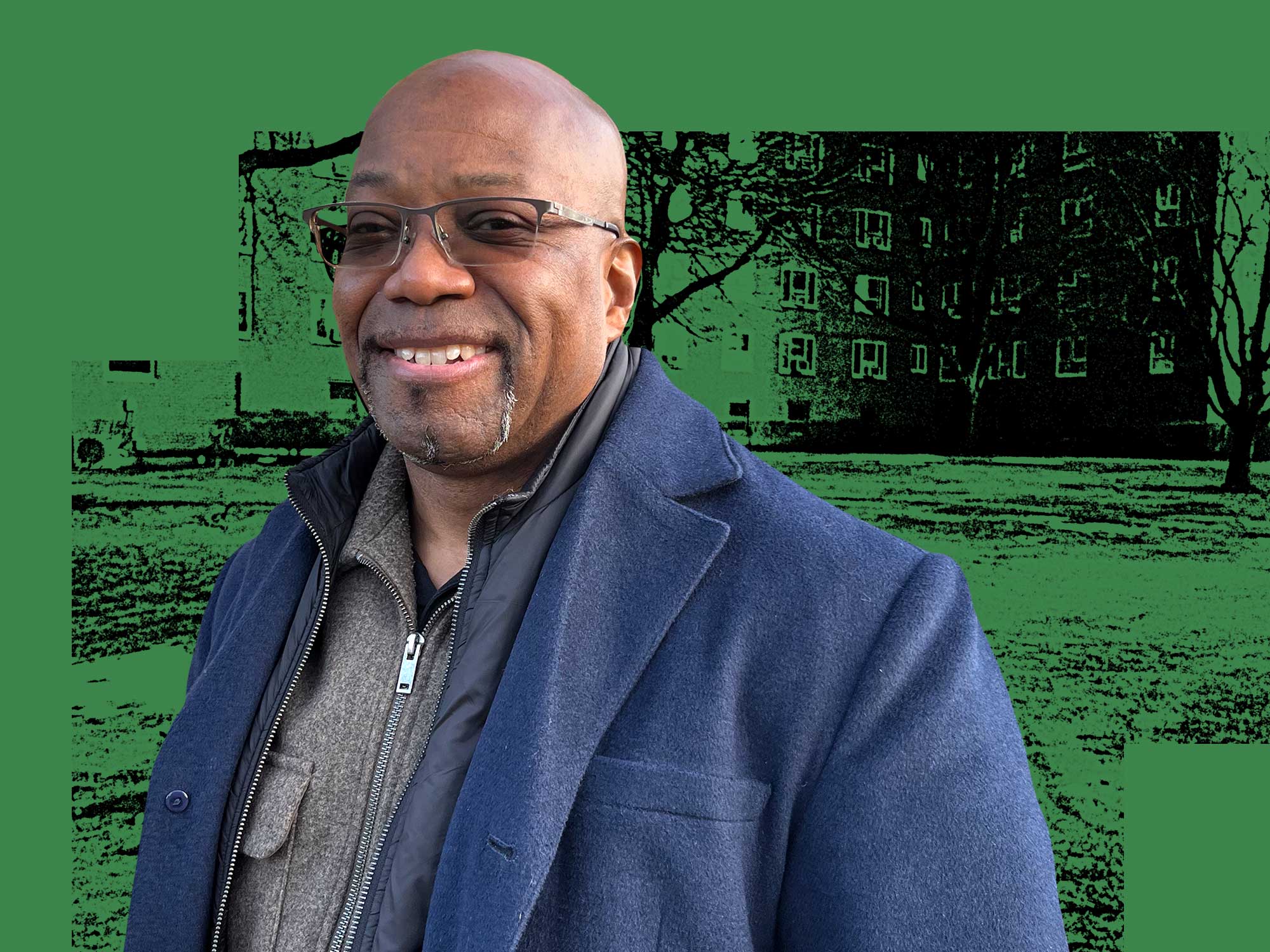
The cash was absolutely the bridge we needed. If we had to leave the apartment, I have no idea where we would have gone.

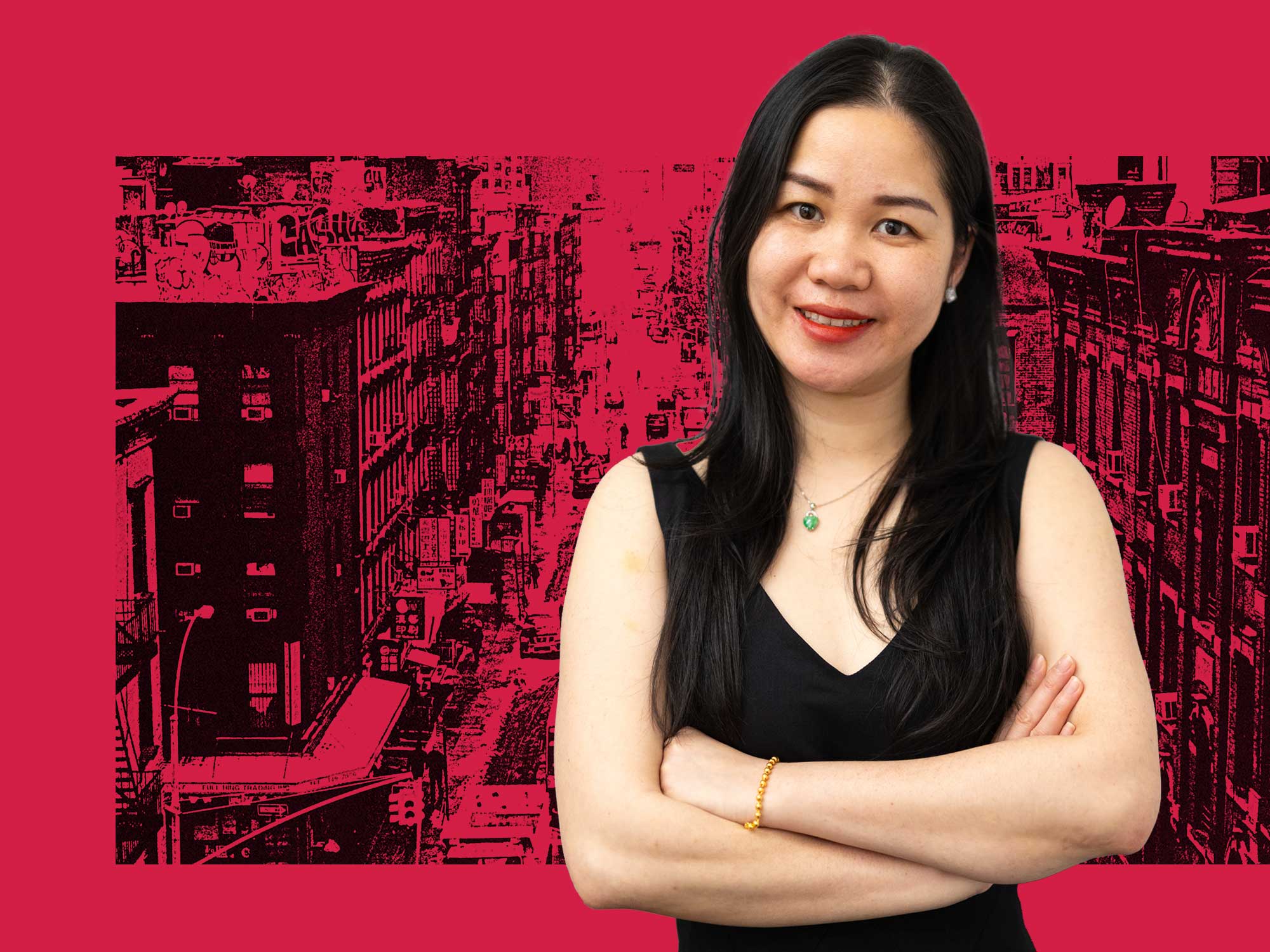
If I hadn’t come back to Henry Street and had walked away from that job, I probably wouldn’t be where I am today.
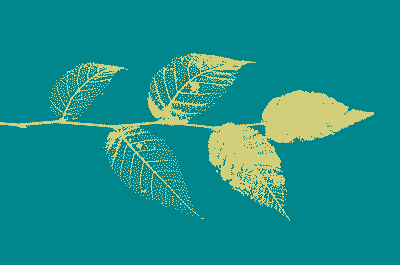
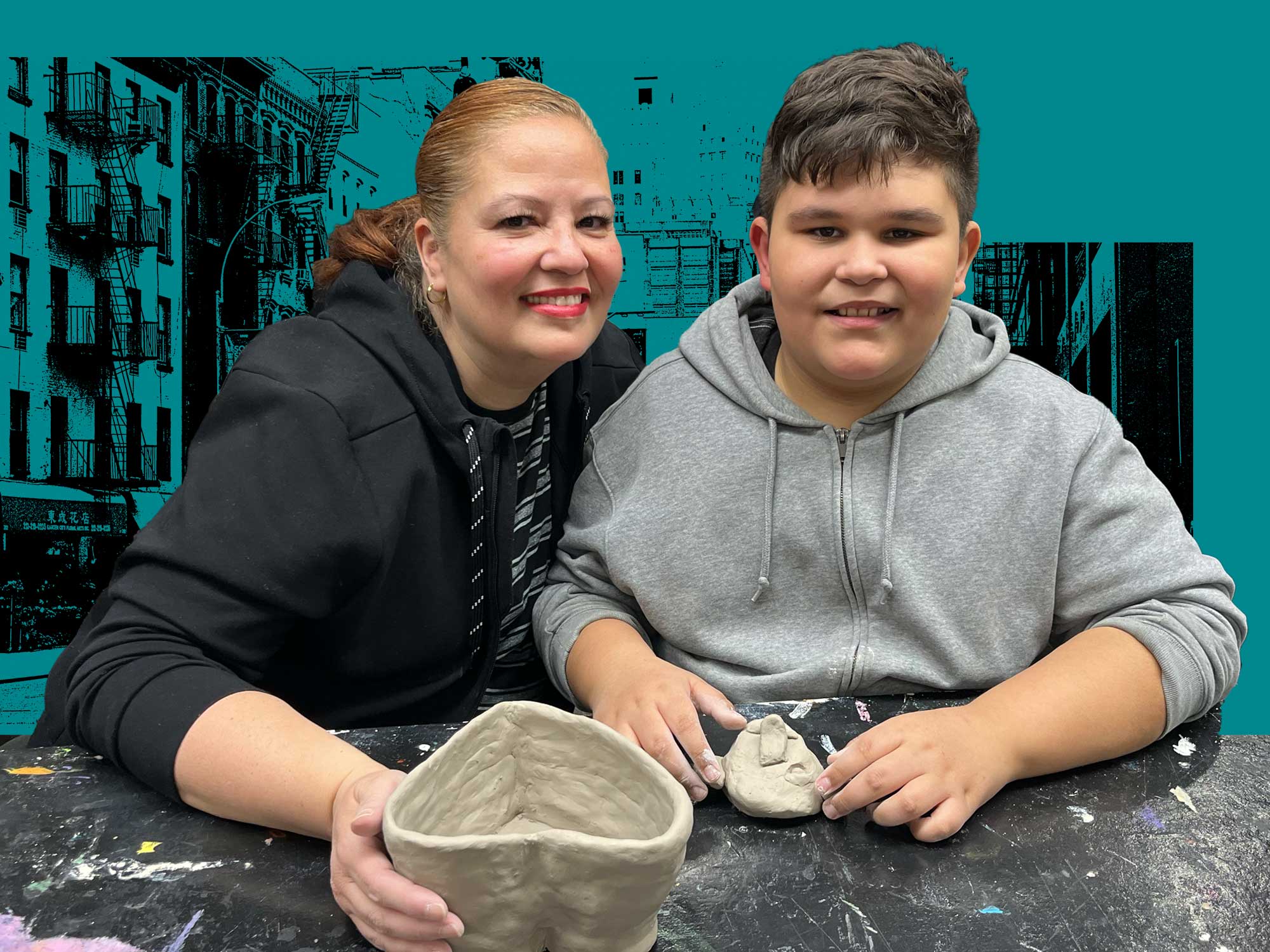
I didn’t know my son could act. I didn’t know he could dance. Abrons was the foundation that helped him explore his talents.

We strive to be a safe—and free—place where older adults can come together, relax, and foster connection.
Jasmine Corchado, Program Director, Older Adult Center
Every dollar you give opens doors for the people Henry Street serves.
Volunteer Profile
Once a single mother herself, the jewelry designer Marla Aaron recalls walking around town with her young son on Mother’s Day, noticing other women getting flowers and gifts. She resolved to find a way to make Mother’s Day a special day of appreciation for single moms. Marla realized her goal soon after starting her own jewelry company with the 2015 launch of Lock Your Mom, a project to give away 1,500 of her signature sterling silver heart pendants each year to single mothers.
Wanting to do even more, in May 2022 Marla joined with Henry Street—where her son had taken piano lessons—to expand on the idea, hosting our first Mother’s Day celebration brunch together, honoring homeless single mothers. The event quickly turned into one of Henry Street’s most anticipated annual celebrations for our community, with fabulous giveaways, beautiful decorations, flowers, a photobooth, art projects for children and mothers, and delicious food. Today, Marla and her team are pioneering new initiatives with Henry Street to provide opportunities for young people looking to break into the jewelry world.
Marla believes that philanthropy is all about walking the walk, and it shows not only in her partnership with Henry Street but in the way she runs her company. Her aim is to run an ethical business in New York, partnering with vendors that promote healthy work environments, sourcing stones and materials ethically, keeping production local, and hiring with an open-door policy. Madison Wunderlich, brand manager at Marla Aaron, says that the company also encourages its own team members to sustainably pursue their passions.
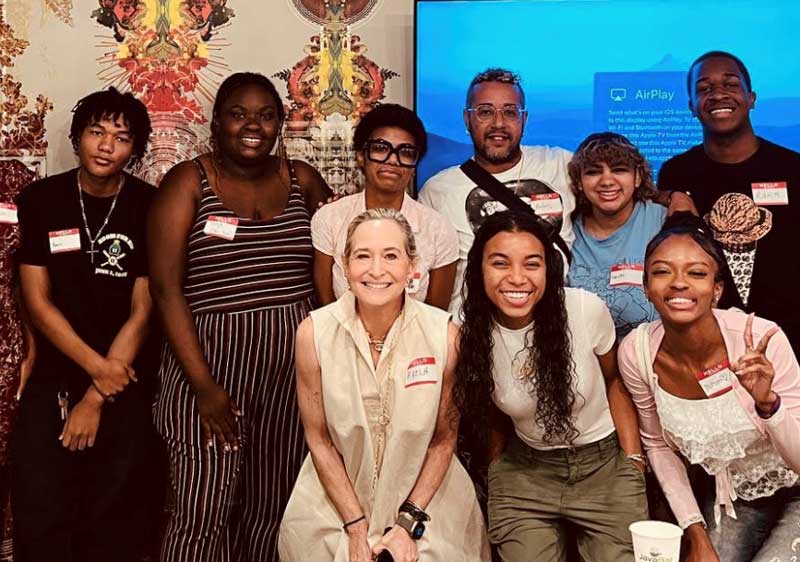
Marla Aaron, front row left, with the 2024 Rambler Studios participants.
Henry Street’s partnership with Marla Aaron has grown over the past year, with Madison participating in our August 2024 career networking event for college students in Henry Street’s Expanded Horizons College Access & Success program, and with Marla’s team hosting a roundtable discussion with members of Rambler Studios, Henry Street’s youth fashion program. For the first time in 2025, Marla Aaron will participate in the Summer Youth Employment program, hiring and mentoring young New Yorkers for six weeks.
Henry Street thanks Marla and the Marla Aaron team for their enthusiasm, hospitality, and sincerity. We look forward to doing more together in the years to come!
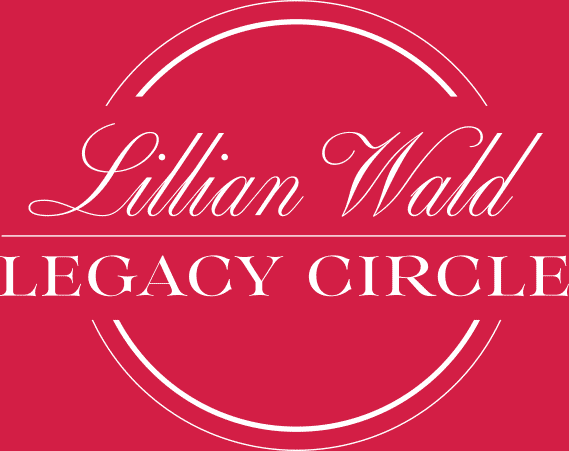
In 2024, the Settlement launched the Lillian Wald Legacy Circle to celebrate donors who make the transformative decision to name Henry Street Settlement in their wills or make an estate gift of any kind (and in any amount) to Henry Street.
Each generation of New Yorkers relies on the progress and generosity of those who came before it. The work of Henry Street’s founder, Lillian Wald, has been profoundly influential for New York City and helped establish a model for holistic social services across the country. Her work also issued a challenge to future generations: Will current and future New Yorkers harness the opportunities of this special city and, in turn, use the resources they gain to open doors for those who follow?
Members of the Lillian Wald Legacy Circle have answered that call. Their bequests and estate gifts sustain our endowment. Their forward-looking decision to support Henry Street in this way is the foundation for the agency’s resilience and continuity long into the future.
Legacy Circle members receive invitations to connect with fellow change-makers at our newly launched series of Lillian Wald Legacy Circle special events. We look forward to seeing new and continuing members at our upcoming Lillian Wald Legacy Circle gathering in conjunction with The Art Show at the Park Avenue Armory!
If you’re interested in joining the Lillian Wald Legacy Circle or learning more, email plannedgiving@henrystreet.org.
In 2024, a total of 1,081 volunteers contributed 2,967 volunteer hours of service to Henry Street, hosting birthday parties for older adults, creating crafts with Early Childhood Education and Afterschool programs, providing interview tips and conversation practice with ESOL clients, and more.
Many thanks to the dozens of partners who made generous donations of food and pantry items, workwear, beauty products, diapers and formula, tickets to sporting events, and more in 2024. With support from our in-kind donors, Henry Street supplied our community members with more than 1,000 hygiene kits through our spring Dignity Drive, 1,200 backpacks through our Back to School Drive, over 4,000 gifts for our Holiday Drive, and more than 100 coats through our winter Coat Drive.
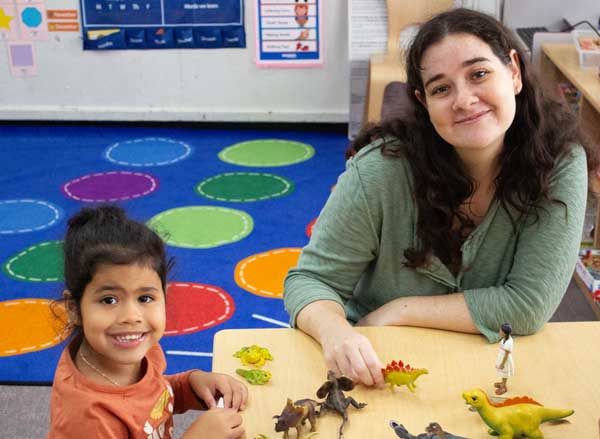
Tanya Chernyak of Scholastic volunteered at Early Childhood Education in October 2024


Henry Street Settlement’s work would not be possible without thousands of individuals, foundations, and corporations, including those who have given for generations and those supporters who are new to the Henry Street family. We are deeply grateful for their generosity.
Our DonorsMeet Henry Street’s dedicated Board of Directors and Leadership Team.
Henry Street operates more than 50 programs in the areas of Health & Wellness, Transitional & Supportive Housing, Older Adult Services, Education, Employment, Visual & Performing Arts, and Community Engagement & Advocacy.
Our Services